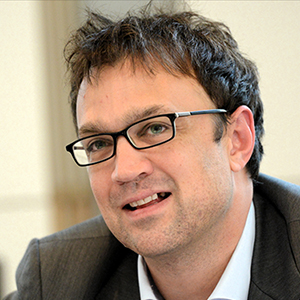What is work? “Paid activity” is a standard but inadequate definition, since the unpaid labors of the mother and schoolchild are undoubtedly still work. “Effortful activity” is not much better: An enthusiastic tennis player can spend any amount of effort without working. Work implies necessity as well as effort; it is doing what you have to do, as opposed to doing what you want. This necessity needn’t be economic. It might be moral, as in the case of the devoted charity worker. But clearly, for an activity to be work, there must be a sense in which you are not free not to do it.
Edward Skidelsky is a lecturer in philosophy at Exeter University. He is the author, with Robert Skidelsky, of How Much Is Enough? Money and the Good Life.

If work is doing what you have to, as opposed to doing what you want, it looks like something we should strive to eliminate. That was the view of Oscar Wilde and John Maynard Keynes—and of Karl Marx too, though he talked of “alienated work” rather than work as such. The difference is largely terminological, though. All three writers looked forward to a day when machine technology would relieve us of the necessity of working for a living, freeing up time for the spontaneous exercise of our creative powers.
This day may be closer than we think. Working hours declined steadily over the last century, especially when we factor in the expansion of education, retirement time, and (sadly) unemployment. And if work is defined not just as paid but as necessary activity, its part in our lives looks smaller still. Many jobs in the affluent world are no longer “livings” in the old sense so much as sources of satisfaction and pleasure in their own right. They have nothing in common bar the name with the wearisome toil that made up “work” for most people in the past.
Work, then, is disappearing slowly but inexorably from our lives. Why are we so reluctant to acknowledge this fact? I see two main reasons. The first is “output fetishism”: the conviction that economic progress consists in the maximization of GDP per capita. An offspring of the economists’ equation of utility with purchasing power, this nostrum was later seized on by politicians eager for some concrete measure of national success. It is, of course, an absurdity. Money is not valuable in itself but as a means to the good things of life, which can be enjoyed only when we are not occupied in making money. The output fetishist is like someone who works round the clock to maintain in tip-top condition a swimming pool he will never use.
Output fetishists are alarmed by the decline of work. They lament the growing gap between retirement and death (the “burden of an aging population”) and put up with the expansion of higher education only for the sake of its presumed economic benefits. Ideally, they would like us all to work all the time. But if the sum total of available work is in stubborn long-term decline, forcing workers to work harder can only swell the ranks of the unemployed. How much more sensible to “spread the bread thin on the butter,” as Keynes put it—to distribute what work remains equitably among the adult population.
But there is another, deeper source of resistance to the prospect of a workless future. From the beginning, Christianity preached work as a penance for Adam’s disobedience and a salutary remedy against the vice of sloth. “A monk who is working is struck by one demon,” wrote the early church father St. John Cassian, “whereas an idler is destroyed by innumerable spirits.” Otium, the Ciceronian ideal of cultivated leisure, became for writers like Cassian a byword for dissipation. “We hear that there are some which walk among you disorderly, working not at all, but are busybodies,” wrote an anxious St. Paul to the Thessalonians. His recommended penalty was severe: “if any would not work, neither shall he eat.”
These ideas have been with us too long to be discarded overnight. They are in our cultural bloodstream, whether or not we call ourselves Christians. St. Paul’s rebuke to the Thessalonians was enshrined in Article 12 of the old Soviet constitution and still finds an echo in tabloid talk of “welfare scroungers.” Paeans to leisure sound frivolous and effete to our Christian or post-Christian ears, especially when they come from the likes of Wilde and Keynes.
So what are we to choose: classical leisure or Christian work? A first step is to realize that we don’t have to choose, for the two ideals are not as discordant as they first appear. Classical writers (unlike their Christian opponents) distinguished sharply between leisure and idleness: by leisure they meant not inactivity but activity released from external ends. And early Christians like Cassian (though not their Calvinist successors) distinguished sharply between work as a spiritual discipline and work as a means of accumulation: this latter they condemned as avarice.
In short, classical leisure and Christian work can be seen as alternative names for the same strenuous and disciplined but non-purposive activity. Such activity, whatever we call it, should come to occupy a larger and larger place in our lives as the necessity of earning a living recedes. Whether it will occupy such a place, or whether we persist in our productivist illusions, is up to us.

For the Future of Work, a special project from the Center for Advanced Study in the Behavioral Sciences at Stanford University, business and labor leaders, social scientists, technology visionaries, activists, and journalists weigh in on the most consequential changes in the workplace, and what anxieties and possibilities they might produce.




